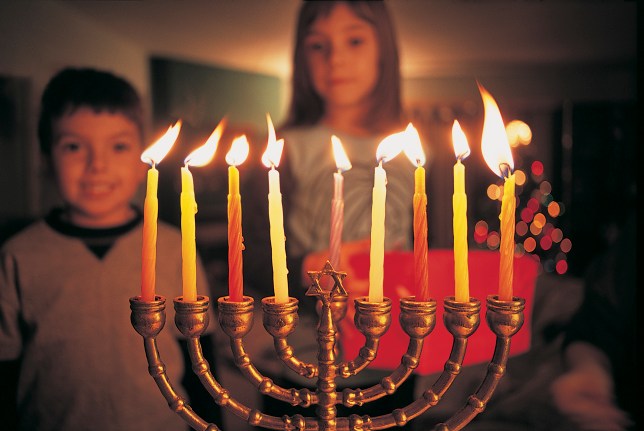What is Hanukkah for Jews?

Hanukkah (sometimes transliterated Chanukah) is a Jewish holiday celebrated for eight days and eight nights. It begins on the 25th of the Hebrew month of Kislev, which coincides with the end of November-end December of the secular calendar.
In Hebrew, the word "hanukkah" means "dedication". The name reminds us that this feast commemorates the new dedication of the holy temple in Jerusalem following the Jewish victory over the Syrian Greeks in 165 BC.
The Hanukkah story
In 168 BCE, the Jewish temple was conquered by Syrian-Greek soldiers and dedicated to the worship of the god Zeus. This shocked the Jewish people, but many were afraid to react for fear of reprisals. So in 167 BC the Greek-Syrian emperor Antiochus made observance of Judaism punishable by death. He also ordered all Jews to worship the Greek gods.
Jewish resistance began in the village of Modiin near Jerusalem. Greek soldiers forcibly gathered Jewish villages and told them to bow to an idol, then to eat pork meat, both practices forbidden to Jews. A Greek officer ordered Mattathias, a high priest, to consent to their requests, but Mattathias refused. When another villager came forward and offered to cooperate on Mattatia's behalf, the High Priest was outraged. He drew his sword and killed the villager, then turned on the Greek officer and killed him too. Her five children and the other villagers then attacked the remaining soldiers, killing them all.
Mattathias and his family hid in the mountains, where other Jews united who wished to fight against the Greeks. Eventually, they managed to regain their land from the Greeks. These rebels became known as the Maccabees or Hasmoneans.
Once the Maccabees regained control, they returned to the Jerusalem Temple. By this time, he had been spiritually contaminated by being used for the worship of foreign gods and also by practices such as sacrifice of pigs. Jewish troops were determined to purify the Temple by burning ritual oil in the Temple menorah for eight days. But to their dismay, they found that there was only one day of oil left in the Temple. They turned on the menorah anyway and, to their surprise, the small amount of oil lasted for the whole eight days.
This is the miracle of Hanukkah oil which is celebrated every year when Jews light a special menorah known as hanukkiya for eight days. A candle is lit on the first night of Hanukkah, two on the second and so on, until eight candles are lit.
Meaning of Hanukkah
According to Jewish law, Hanukkah is one of the least important Jewish holidays. However, Hanukkah has become much more popular in modern practice due to its proximity to Christmas.
Hanukkah falls on the twenty-fifth day of the Hebrew month of Kislev. Since the Jewish calendar is moon-based, the first day of Hanukkah falls on a different day each year, usually between the end of November and the end of December. Since many Jews live in predominantly Christian societies, Hanukkah has become much more festive and Christmas-like over time. Jewish children receive gifts for Hanukkah, often a gift for each of the eight nights of the party. Many parents hope that by making Hanukkah truly special, their children will not feel excluded from all the Christmas holidays that take place around them.
Traditions of Hanukkah
Each community has its own unique Hanukkah traditions, but there are some traditions that are practiced almost universally. They are: turn on the hanukkiyah, turn the dreidel and eat fried foods.
Lighting the hanukkiya: every year it is customary to commemorate the miracle of Hanukkah oil by lighting candles on a hanukkiyah. The hanukkiyah is illuminated every evening for eight nights.
Spinning the dreidel: a popular Hanukkah game is spinning the dreidel, which is a four-sided top with Hebrew letters written on each side. Gelt, which are foil-coated chocolate coins, are part of this game.
Eating fried foods: Since Hanukkah celebrates the miracle of oil, it is traditional to eat fried foods such as latkes and sufganiyot during the holidays. Smoothies are potato and onion pancakes, which are fried in oil and then served with apple sauce. Sufganiyot (singular: sufganiyah) are jelly-filled donuts that are fried and sometimes sprinkled with powdered sugar before eating.
In addition to these customs, there are also many fun ways to celebrate Hanukkah with children.